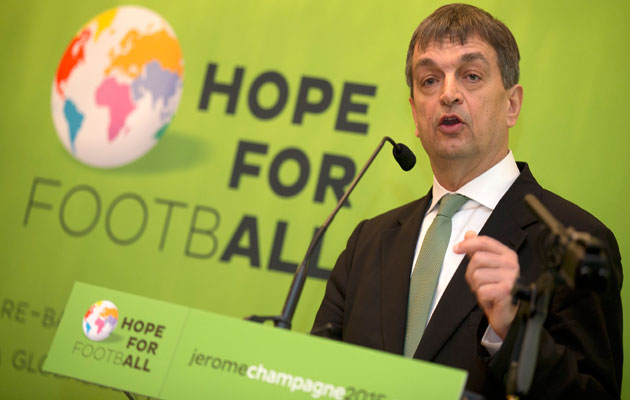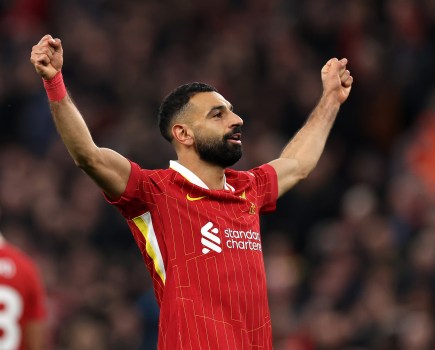Former football executive Jerome Champagne officially has announced his intention to stand for the Fifa presidency.
Champagne is a former French diplomat who served as an executive at Fifa from 1999 to 2010. Since leaving Fifa he has acted as an international football consultant, working for a number of countries, most notably in a conciliatory capacity on behalf of Palestine and Israel.
The 57-year-old Frenchman is the fourth official candidate to throw his hat in the ring in the bid to succeed Sepp Blatter.
Champagne is set to face Uefa president Michel Platini, Prince Ali bin al-Hussein of Jordan, and former Trinidad and Tobago national captain David Nahkid in next February’s election.
Prosecutors are investigating both Blatter and Platini as part of a wider probe into corruption and bribery within football’s governing body that has seen many executives arrested in separate US and Swiss inquiries.
Speaking of his candidacy, Champagne, who failed to secure sufficient nominations to contest May’s presidential election, offered a more democratic vision for football’s future.
<<The man who would be king – World Soccer interview with Champagne>>
“The 20 wealthiest clubs in the world have a cumulative turnover of 6.2 billion euros ($6.90 billion) per year, but more than half the 209 national football federations survive with less than 2 million euros a year (each),” he told Reuters.
“The national team of Papua New Guinea plays only two matches a year because they cannot afford the plane tickets. The annual budget is not even half a million euros.”
Champagnealso highlighted the disparity between the lavish surroundings of Fifa’s headquarters in Zurich and some of the conditions national leagues are forced to play in.
“Near my flat in Zurich is a park; there are six football pitches, five natural and one artificial; this suburb of Zurich has more good quality pitches than the whole of the Democratic Republic of Congo, with 70 million inhabitants,” he said.
Champagne has also spoken of his intention to reconsider the awarding of the 2022 World Cup to Qatar if he is elected. This tournament, along with the one due to be staged in Russia in 2018, is part of the corruption investigation led by Swiss prosecutors.
The FIFA presidential election will take place in Zurich next February.







